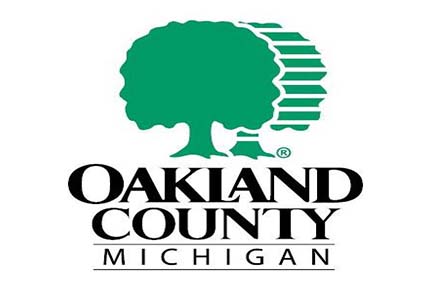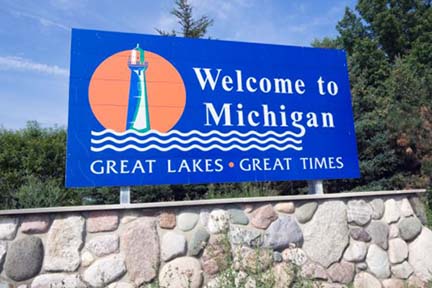Nearly 500,000 Michiganders entered ‘MI Shot To Win

FOR IMMEDIATE RELEASE July 2, 2021 Contact: press@michigan.gov
Nearly 500,000 Michiganders entered state’s new ‘MI Shot To Win Sweepstakes’ after Gov. Whitmer announces kickoff of $5 million in cash and college scholarship giveaway
LANSING, Mich. – The popularity of Michigan’s new MI Shot To Win Sweepstakes is already booming like Fourth of July fireworks. Within 24 hours after Governor Gretchen Whitmer announced the creation of the MI Shot To Win Sweepstakes – a lottery-style raffle that gives vaccinated Michiganders a chance to win more than $5 million in cash and a combined total of nearly $500,000 in college scholarships – entries began flooding in.
As of Friday (July 2) at 8:00 a.m. EDT, the MI Shot to Win Sweepstakes received 464,698 applicants for the grand prizes, with 23,978 young Michiganders signed up for the scholarship drawing.
In addition, news coverage of Gov. Whitmer’s announcement of the sweepstakes at a Lansing press conference Thursday generated nearly $1 million in free publicity about the giveaway and the importance of getting a COVID-19 vaccination.
The sweepstakes began Thursday (July 1) and ends on Aug. 3, 2021. Eligibility criteria for each of the drawings is at: www.MIShotToWin.com.
“This is an innovative way to encourage more Michiganders to get vaccinated, and I am delighted to see so much excitement for the kickoff of the MI Shot To Win Sweepstakes,” said Governor Whitmer. “We understand there are people out there who have questions, and maybe this will motivate them to seek the answers to their questions so they feel comfortable getting vaccinated.”
The MI Shot To Win Sweepstakes is the latest kickoff in a series of lottery-style raffles by other states such as Ohio’s first-in-the-nation launch of the “Vax-a-Million” campaign. Ohio said vaccinations in the state increased 94% among 16- and 17- year-olds, 46% among 18- and 19-year-olds and 55% among those between 20 and 49 years old after Gov. Mike DeWine announced the lotteries.
“If there’s one thing every Michigander can agree on, it’s that whatever Ohio can do, Michigan can do it better and bigger,” Governor Whitmer said Thursday during the news conference at the Cristo Rey Catholic Parish community center in Lansing.
Michigan’s sweepstakes giveaway is powered by Meijer in partnership with the Michigan Association of United Ways and the State of Michigan. The statewide vaccine sweepstakes is supported by Blue Cross Blue Shield of Michigan, Michigan Chamber of Commerce, Michigan Association of State Universities, Small Business Association of Michigan, Business Leaders of Michigan, the Protect Michigan Commission and many more organizations.
The aim of the MI Shot To Win Sweepstakes is to increase the state’s vaccination rate by roughly 9% – or approximately 667,000 Michiganders – to achieve the statewide goal of 70% of residents age 16 and older who are immunized.
As of July 1, 2021, 61.8% (more than 5 million Michiganders) age 16 and older have received their first dose of a COVID-19 vaccination, according to Michigan Department of Health and Human Services data.
“The tremendous support we are receiving from our business, community, nonprofit and government partners for the MI Shot To Win Sweepstakes is inspiring and will help ensure we reach our objective of getting to a 70% immunization rate,” said Protect Michigan Commission Director Kerry Ebersole Singh.
“We are thrilled with the results we’re seeing after just one day,” Ebersole said. “”But for this sweepstakes to be successful, we’re asking all Michiganders to call your family and friends today and make sure they know now is the time to get vaccinated in order for a chance to win one of the amazing giveaways in the next 30 days.”
Governor Whitmer created the Protect Michigan Commission in January. The appointees represent a diverse array of industries, professions and backgrounds. Housed within the MDHHS, commission leaders are charged with helping to ensure every Michigander has a plan to get vaccinated against COVID-19.
Blue Cross Blue Shield of Michigan President and CEO Daniel Loepp also issued a statement Thursday offering support for Michigan’s vaccine incentive initiative, noting that “with COVID-19 vaccination rates plateauing and coronavirus variants spreading, we must continue to act with urgency.”
Under Michigan’s new sweepstakes, residents age 18 and older who have received one dose of vaccine are eligible to register for a combined total of $5 million in cash giveaways.
In addition, Michigan’s vaccine sweepstakes will offer the opportunity to win one of nine Scholarship Drawing prizes available to vaccinated Michiganders between ages 12-17 whose parents enter on their behalf. Each Scholarship Drawing prize consists of a four-year Michigan Education Trust (MET) charitable tuition contract (valued at $55,000) that may be used to pay for tuition and mandatory fees at a college or university in accordance with MET terms and conditions.
The sweepstakes will hold a number of drawings including:
$1 Million Drawing
$2 Million Drawing
$50,000 Daily Drawing
Scholarship Drawings
YOU CAN REGISTER FOR THE SWEEPSTAKES ONLINE AT https://www.mishottowin. To enter the sweepstakes by phone, please call the MI Shot to Win Sweepstakes Hotline:
|




